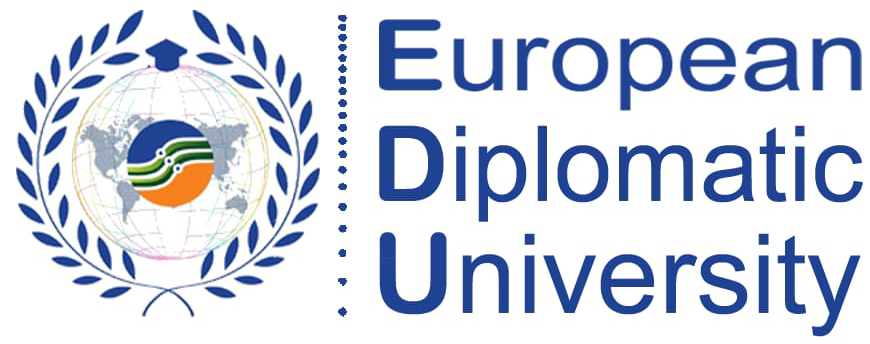About Us
European Diplomatic University Established in 2018 Under the protocols of the Diplomatic Research and Policy Foundation (DRPF) is an intergovernmental organization with the status of a university. Based on the conclusions of the 1948 Hague Congress, the DRPF’s mission is to provide bilingual (French, English and Macedonian) education to postgraduate students, DRPF Treaties signed by three countries Albania, North Macedonia and Republic of Kosovo. EDU organizes research activities, scientific colloquiums, training seminars and other activities aiming to further European integration.
The curriculum revolves around four European studies departments: Political and Administrative Studies, Medicine, Economic Studies, Legal Studies, and International Relations and Diplomacy Studies. EDU is running all domains but only in diplomatic studies in such domains. Like Health Diplomacy, Trade Diplomacy, Foreign Policy, Aviation Policy etc.
The EDU’s governing bodies are the Administrative Council, the Executive Committee, the Rector and the Academic Council. The Administrative Council includes representatives of the countries hosting the campuses in Balkan and of the other European governments. It is responsible for attaining the EDU’s objectives. The Executive Committee, which exercises the responsibilities delegated by the Administrative Council, is in charge of the administrative and financial management of the organization. Lastly, the Academic Council ensures the maintenance of high-level teaching and training programmes.
Funding for the EDU takes the form of subsidies received from the European Commission and EU Member States, International Organisations and Partner Universities . The scholarships granted by these Member States for their students attending the University make up another source of income.
EDU’s purpose is to define the future of Education and Politics. We are guided by a distinct set of values—non-partisanship, independent thought, innovative thinking, cross-disciplinary scholarship, integrity and professionalism, and talent development. EDU’s values work in concert toward the goal of making real-world impact.
EDU scholars bring their policy expertise, judgment, and robust networks to their research, analysis, and recommendations. We organize conferences, publish, lecture, and make media appearances that aim to increase the knowledge, awareness, and salience of policy issues with relevant stakeholders and the interested public.
EDU has impact when our research helps to inform the decision making of key policymakers and the thinking of key influencers. We work toward a vision of a safer and more prosperous world.

Mission Statement and Activities
The EDU wants to promote an effective co-operation between Member States for the full development and utilization of their human resources.
To achieve the target EDU intends to consolidate their existing training institutions, improve the efficacy of their educational systems, encourage exchanges between schools and universities, establish best practices of professional and technical qualifications, encourage literacy, establish regional centres of excellence in various disciplines and encourage the exchange of skilled manpower between Member States.
For the achievement of its purposes DRPF develops focused programmes with public institutions, universities and representatives of private sector.
The Institute supports the UN Sustainable Development Goals.
The EDU desires to establish consistent public-private partnerships in view of the educational and professional harmonization of formative standards, for the maximization of the insertion of graduate students into the labour market.
At EDU, our mission is to deliver best-of-class education and consulting services to our Participating States’ officials as well as to our general public students. According to its Statutes, EDU’s official mission is to:
- Develop and offer tailored training programs for officials and employees of the Participating Governments, especially Ministry and University senior staff;
- Develop and offer high-quality degree programs for the general public, regardless of location and citizenship;
- Facilitate the creation of cooperative networks and programs relevant to its educational initiatives;
- Promote the international image of the Participating Countries, as well as cooperate with and offer support to the educational institutions located in the Participating Countries;
- Broaden the understanding of the field of distance education and to promote the implementation and dissemination of methods, norms, rules and guidelines that apply to this field;
- Function as a think-tank and technical advisor to the Participating Governments , including in such areas as public relations, e-government, MCC support and general grant writing or fundraising;
- Strengthen and support the national capacity to engage in Sustainable Development through ad-hoc training and education, while taking into consideration the traditional social and cultural values of each nation.
